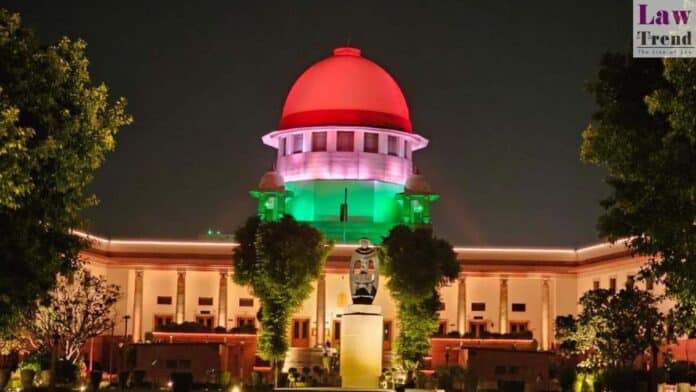The Supreme Court has raised alarm over the proliferation of unauthorised constructions across the country, directing high courts and state governments to take firm action against the practice that undermines urban planning, burdens civic infrastructure, and jeopardises public safety.
A bench of Justices J.B. Pardiwala and K.V. Viswanathan, while dealing with two separate matters, underscored that illegal constructions were not private disputes but issues of larger public concern, demanding strict enforcement of building laws.
Case from Howrah, West Bengal
In one case from Howrah, West Bengal, the top court dismissed a plea by a construction firm challenging a Calcutta High Court order directing demolition of unauthorised portions of a building. The bench praised the high court for its proactive approach and urged it to widen its scrutiny beyond individual cases.
“We appreciate the concern shown by the High Court in taking appropriate action against such unauthorised constructions all across the city. It is high time that the High Court in larger public interest takes up this issue and ensures that each and every unauthorised construction across the city of Calcutta is dealt with appropriately in accordance with law,” the bench observed.
The court noted that the Howrah Zilla Parishad itself had concluded that the builders knowingly deviated from sanctioned plans and directed removal of the illegal structures.
Directions to Odisha
In another matter, the bench issued notice to the Odisha government on its compliance with sweeping guidelines the Supreme Court had issued in December 2024 to tackle unauthorised constructions nationwide.
The December 2024 ruling—delivered in a case involving an illegal building in Meerut—mandated strict safeguards, including:
- Builders providing undertakings that possession of flats or commercial spaces would be handed over only after valid completion or occupation certificates.
- Periodic inspections by authorities to prevent violations.
- Denial of electricity, water, and sewerage connections to illegal buildings.
- Departmental action against complicit officials.
- Restrictions on banks and financial institutions from sanctioning loans against properties without verifying completion or occupation certificates.
- Prohibition of business and trade licences for unauthorised structures.
Court’s Warning
Hearing a contempt petition filed through senior advocate Shadan Farasat, the bench reminded Odisha that its earlier directions were categorical that illegal constructions cannot be regularised or condoned.
“If the authorities strictly adhere to the directions… they would have a deterrent effect and the quantum of litigation before the courts would come down drastically,” the order reiterated.
The bench described illegal construction as a “social menace” and cautioned that neither administrative laxity nor attempts at regularisation could be used to shield violators. “The State is unmindful that this gain is insignificant compared to the long-term damage it causes to orderly urban development and irreversible adverse impact on the environment,” the court said.
The December 2024 judgment was ordered to be circulated to all high courts, state chief secretaries, and local bodies for effective implementation.




